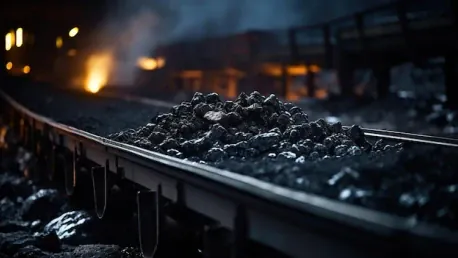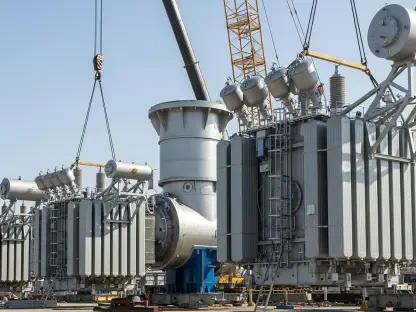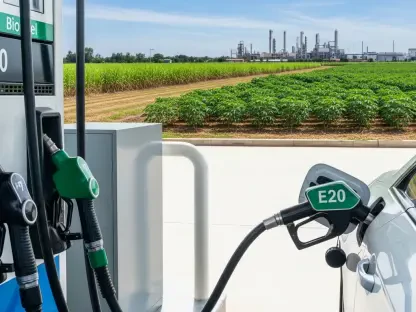The Whitehaven coal mine project in Cumbria, originally granted planning permission in December 2022, faced its most significant challenge yet as the planning application was formally withdrawn. This decision ended a contentious and high-profile planning process for the £165 million underground metallurgical coal mine. Environmental groups Friends of the Earth (FOTE) and South Lakes Action on Climate Change (SLACC) successfully challenged the project’s approval in the High Court, leading to a reassessment by the Ministry of Housing, Communities, and Local Government. With the formal withdrawal of the application by West Cumbria Mining in April 2023, local campaigners and organizations breathed a sigh of relief as they now turn their focus towards sustainable development and green job opportunities in the region.
Legal Challenges and Environmental Concerns
The Whitehaven coal mine project faced considerable opposition from environmental groups, which significantly impacted its progression. The initial planning permission granted by former Secretary of State Michael Gove was met with objections from groups like Friends of the Earth and South Lakes Action on Climate Change. These organizations raised significant environmental concerns, particularly regarding the carbon emissions resulting from the burning of the extracted coal. In September 2022, the High Court quashed the consent, marking a pivotal legal victory for environmental campaigners.
The challenge argued that the carbon emissions from the project were not properly accounted for in the planning process. The court’s decision reflected a growing recognition of the importance of thorough environmental assessments in major projects. This ruling forced the Ministry of Housing, Communities, and Local Government to reassess the planning application, delaying the project’s progress and casting doubt on its viability. The reevaluation stage highlighted the increasing significance of environmental considerations in the decision-making processes of governmental bodies.
Government Reassessment and Final Withdrawal
Following the High Court’s ruling, the Ministry of Housing, Communities, and Local Government began reassessing the planning application for the Whitehaven coal mine. This step was crucial, as it underscored the heightened scrutiny applied to projects with significant environmental impact. Amidst this reassessment, broader policy shifts within the UK government emerged, aimed at phasing out coal mining and pivoting towards greener alternatives. These policy changes aligned with global efforts to combat climate change and mitigate environmental degradation.
In April 2023, West Cumbria Mining officially withdrew its planning application for the Whitehaven coal mine, effectively terminating the project. This decision was a direct response to the prolonged legal and regulatory challenges faced by the project, emphasizing the mounting influence of environmental activism. For many, this withdrawal marks a significant turning point, affirming the power of legal action and public pressure in shaping sustainable development policies. The removal of the application from the planning register symbolized the closure of this highly controversial chapter.
A Shift Towards Sustainable Development
The withdrawal of the Whitehaven coal mine planning application signaled a broader shift in prioritizing sustainable development within the region. Local campaigners and organizations, who had long opposed the project, have now directed their efforts towards fostering green job opportunities. This strategic redirection aims to balance economic growth with environmental responsibility, leveraging the area’s potential for renewable energy projects and eco-friendly industries.
The narrative surrounding the Whitehaven project highlights the evolving priorities within governmental planning processes. There is an increasing acknowledgment of the need to harmonize economic objectives with environmental conservation. This case serves as a precedent for future infrastructure proposals, where rigorous environmental assessments and community engagement are likely to become standard practice. The successful legal challenges mounted by environmental groups underscore the effectiveness of advocacy in influencing policy decisions.
Conclusion and Future Implications
The Whitehaven coal mine project encountered substantial opposition from environmental advocates, which heavily impacted its development. Initially approved by former Secretary of State Michael Gove, the project faced objections from groups like Friends of the Earth and South Lakes Action on Climate Change. These organizations highlighted severe environmental issues, particularly focusing on the carbon emissions generated by burning the mined coal. In September 2022, the High Court revoked the consent, marking a significant legal victory for environmental activists.
The challenge centered on the argument that carbon emissions from the project were inadequately considered during the planning stages. The court’s decision underscored the growing importance of comprehensive environmental assessments in major projects. This ruling compelled the Ministry of Housing, Communities, and Local Government to reevaluate the planning application, delaying the project’s timeline and casting doubt on its future. The reassessment phase underscored the increasing prominence of environmental factors in the decision-making processes of governmental agencies.









